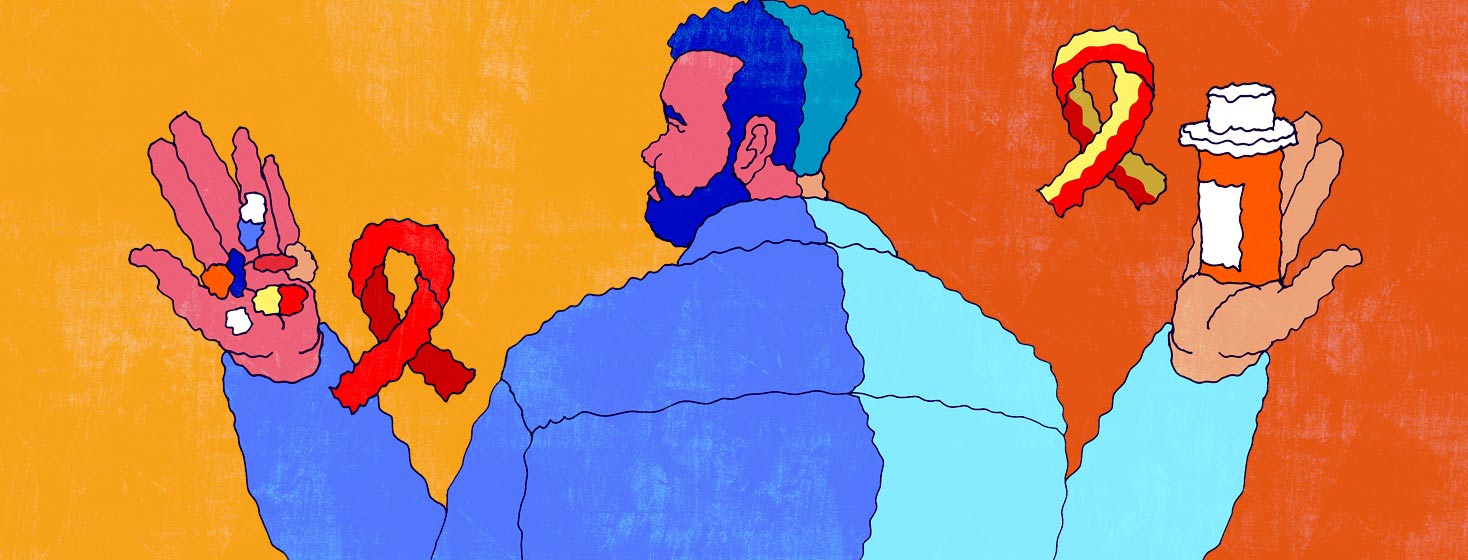Treating HIV and HCV at the Same Time
Over 20% of people with HIV are also diagnosed with HCV1, so I want to share some information for treating HIV and HCV at the same time. First, the CDC recommends all people who have HIV also get tested for hepatitis C. Most medical providers encourage their patients to begin to treat for hepatitis C in order to reduce the risk of liver damage.1 Making the decision to treat hepatitis C while taking HIV medications is an important one and your medical provider will help you. With the direct-acting antiviral (DAA) medications, people with HIV can safely take treatment for hep C.
Can hep C be cured?
While there is no cure for HIV, there is a very high cure rate for hepatitis C. People of all ages can take hep C treatment. Today's hep C treatments have cure rates over 95%, on average. Your medical provider can prescribe it and supervise your treatment.
Treatment options by genotype
Most DAAs are pangenotypic, meaning they work against all genotypes. However, your medical provider will still test to see what genotype you have before prescribing.
Reinfection and recurrence
Unlike HIV, once a person is cured of hep C, they no longer have the virus. Without reinfection, hep C is unlikely to recur (or come back).2 After finishing treatment, they will get a new viral load taken from their lab work. It will show a sustained viral response or SVR, which means that they are now cured of hep C. Their blood may show antibodies, meaning they had the virus, but now it is gone.
Time
The DAAs typically are a single pill that is taken once a day, by mouth, for a few weeks. Some of the older treatments included interferon injections and lasted a long time; This made it more difficult for people who were co-infected with hep C and HIV. Modern medicine now offers easy-to-take oral medications with much fewer side effects.
Your health with HIV and HCV
If you have tested positive and are considering getting cured for HCV while you have HIV, now is the time. Most doctors encourage treatment to protect your liver and allow you to stay healthier with HIV.
Side Effects
Some people who treat for hepatitis C experience a few side effects like fatigue, headache, or nausea. Not everyone has side effects, and most are able lead an active life. Your medical provider can help you decide if you want to continue to work while on treatment. It is good to have a support system in place.
Treatment for HIV
If you’ve got HIV, then you may be taking a combination of medications. HIV can be successfully treated using retrovirals.3 Your HIV meds can be continued while on hep C treatment.1,4 People who have both HIV and HCV should look for health care providers who have experience in treating both HIV and viral hepatitis. Your doctor may tweak your dosage, but they will make sure that your HIV meds are still effective while you are on hep C meds.
Starting hep C treatment
Hepatitis C targets your liver, and can slowly cause cirrhosis, but by getting treatment, you can prevent further damage. Your medical provider who is treating you for HIV can provide more information. Many people who are HIV-positive have been able to successfully treat and become cured of hepatitis C.

Join the conversation